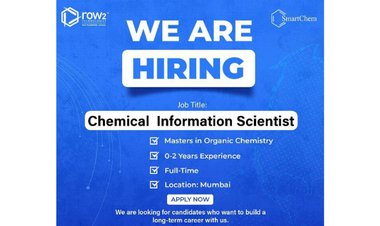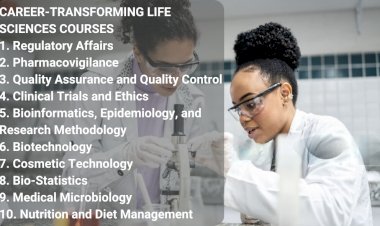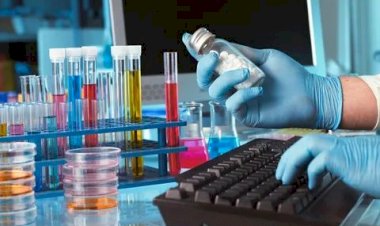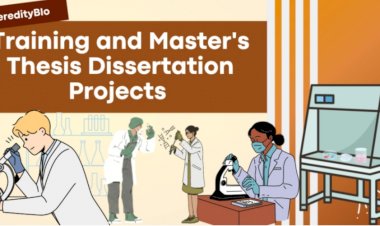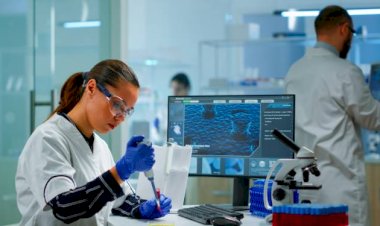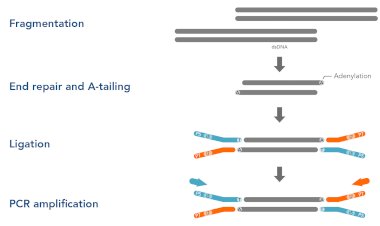Career Scope for Life Science Graduates in India: Emerging Opportunities and Industry Trends
Explore the vast career opportunities for life science graduates in India, including roles in biotechnology, pharmaceuticals, clinical research, bioinformatics, and regulatory affairs. Learn about industry trends, essential skills, and how hands-on training can boost employability in this rapidly growing sector.

Introduction
The life sciences industry in India has entered a high-growth phase, powered by advances in biotechnology, pharmaceuticals, medical devices, genomics, and agricultural sciences. As per the India Brand Equity Foundation (IBEF), the Indian biotech sector is projected to grow at a CAGR of 16.4%, reaching USD 150 billion by 2025. This transformation is driven by:
- Heavy R&D investments by global and domestic companies.
- Growing demand for affordable healthcare solutions.
- Integration of AI, machine learning, and big data analytics in drug discovery and healthcare delivery.
- Government initiatives such as BIRAC, Biotechnology Parks Scheme, and Atal Innovation Mission.
For graduates in biotechnology, pharmacy, microbiology, genetics, biochemistry, and biomedical engineering, the scope of opportunities is broader than ever before — spanning research, manufacturing, policy, digital health, and entrepreneurship.
Why Life Sciences is a High-Potential Career Path
Life sciences influence every aspect of human life — from developing new medicines to ensuring sustainable agriculture. The sector in India is particularly attractive due to:
- Pharmaceutical leadership – India accounts for 20% of the global supply of generic medicines and is the largest vaccine producer in the world.
- Global clinical research growth – The clinical trials market in India is valued at USD 2.1 billion and is expanding rapidly with a strong pipeline of Phase II and III studies.
- Boom in biologics and biosimilars – India is home to leading biologics manufacturers like Biocon, Dr. Reddy’s, and Zydus Cadila.
- Healthcare access expansion – The rollout of Ayushman Bharat and telemedicine platforms is creating new demand for diagnostics and treatment innovations.
- Green and agri-biotech initiatives – Innovations in biofertilizers, GM crops, and bioenergy are critical to sustainable growth.
Major Career Opportunities in Life Sciences
1. Drug Discovery & Development
Roles include medicinal chemist, molecular biologist, pharmacologist, and formulation scientist. Professionals use high-throughput screening, computational modeling, and clinical data to design and test new drug molecules.
2. Biotechnology & Genetic Engineering
Applications span healthcare (gene therapy, stem cell therapy), agriculture (GMO crops, CRISPR), and industry (enzyme production, bioplastics). Specialists are in demand for R&D, process optimization, and quality control.
3. Clinical Research & Trials
CRAs and Clinical Data Managers are essential for running compliant studies under ICH-GCP standards. They coordinate between sponsors, investigators, and ethics committees, ensuring safety and data integrity.
4. Bioinformatics & Computational Biology
Experts analyze large-scale genomics, proteomics, and metabolomics data, enabling precision medicine and predictive disease modeling. Demand for AI-assisted bioinformatics roles is growing by over 20% annually.
5. Regulatory Affairs & Quality Assurance
Professionals prepare regulatory dossiers for FDA, EMA, and CDSCO, handle product registration, and ensure compliance with GMP, GLP, and ISO standards.
6. Medical Devices & Diagnostics
Opportunities exist in R&D, manufacturing, validation, and compliance for devices like imaging systems, implants, and point-of-care diagnostics.
Emerging Industry Trends Shaping Careers
- Precision & Personalized Medicine – Targeting therapies based on individual genetic profiles.
- Biopharma Growth – Rising demand for monoclonal antibodies, biosimilars, and cell-based therapies.
- Digital Health & Telemedicine – AI-driven diagnostics, wearable health monitors, and remote patient management systems.
- Synthetic Biology – Engineering microbes to produce biofuels, novel drugs, and eco-friendly materials.
- CRISPR & Genome Editing – Revolutionizing agriculture, therapeutics, and disease prevention.
- Environmental Biotechnology – Using microbes for waste treatment, pollution control, and sustainable industrial processes.
Essential Skills for Life Science Professionals
- Core Technical Skills: Cell culture, PCR, spectroscopy, chromatography, protein purification, molecular docking.
- Digital & Analytical Skills: Data analytics, statistical modeling, AI/ML in healthcare, bioinformatics tools like BLAST, PyMOL, AutoDock.
- Regulatory & Compliance Knowledge: Understanding GMP, GLP, GCP, ISO 13485, and clinical trial regulations.
- Soft Skills: Scientific communication, problem-solving, adaptability, and cross-disciplinary collaboration.
Bridging the Gap: Industry-Focused Hands-on Training
While theoretical knowledge is foundational, industry recruiters prioritize graduates with applied skills. Training programs focusing on wet lab techniques, bioinformatics workflows, regulatory documentation, and clinical data management greatly enhance employability. Collaborations with research institutes, hospitals, and CROs give students exposure to real-world project environments.
Hands-on modules can cover:
- Cell and molecular biology techniques (cloning, gene expression, protein assays)
- Clinical trial simulation platforms
- Regulatory submission preparation (CTD/eCTD format)
- Bioinformatics pipelines for genomics analysis
About IBRI Noida
The Institute of Bioinformatics and Research (IBRI), Noida, is a leading life sciences training and research institute dedicated to bridging the gap between academic learning and industry requirements. Through its specialized certificate and diploma programs in biotechnology, bioinformatics, clinical research, regulatory affairs, and computer-aided drug design, IBRI equips students and professionals with hands-on skills, industry-standard tools, and real-world project experience. With a strong network of faculty, industry experts, and research collaborations, IBRI ensures learners are prepared for careers in pharmaceutical companies, contract research organizations (CROs), hospitals, biotech firms, and academic research institutions.
Conclusion
Life sciences in India offers a thriving career landscape for graduates who combine academic knowledge with industry-ready skills. The field is not just about laboratory research — it integrates technology, data science, regulation, and business strategy to solve some of the world’s most pressing challenges. As India continues to strengthen its position as a global hub for biotechnology, pharmaceuticals, and clinical research, those who stay ahead in skills, trends, and innovation will lead the next wave of scientific breakthroughs.









